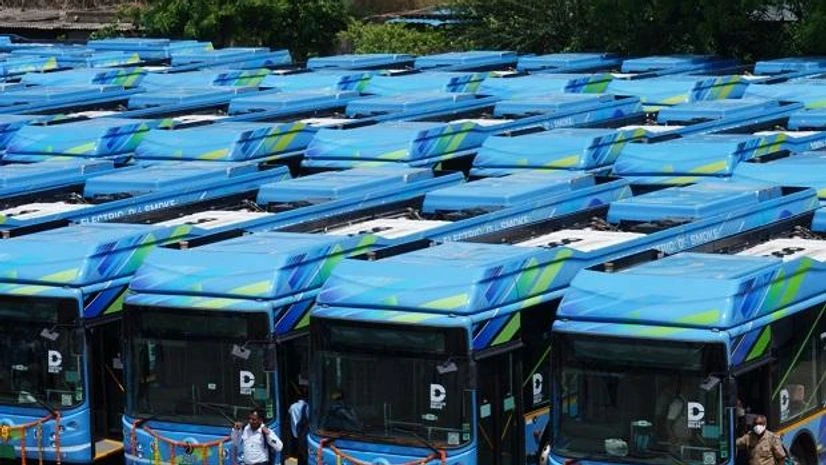By Aditi Shah and Sarita Chaganti Singh
India's large bus makers including Tata Motors, JBM Auto and PMI Electro have not bid for the latest government contract to supply nearly 5,000 electric buses because they fear not getting paid on time, three sources told Reuters.
Some companies have also stayed away because of new labour clauses in the tender documents, an industry source and a government official said, slowing India's efforts to curb vehicular pollution by electrifying its public transport.
Prime Minister Narendra Modi's government wants to deploy 50,000 electric buses countrywide over the next few years which is estimated to cost $12 billion. To do this, it is aggregating demand from state governments and issuing contracts or tenders which companies bid for.
In the first two tenders for about 11,000 electric buses the government received bids from major bus makers including Tata, JBM, Ashok Leyland, PMI Electro and Olectra Greentech , which has partnered with China's BYD.
While there have been no payment issues so far, the state transport corporations have previously delayed payments to bus makers when procuring combustion engine vehicles, the industry sources said.
More From This Section
The third tender for 4,675 buses opened in January and closed this week but got bids from only one Indian EV startup - Eka Mobility owned Pune-based Pinnacle Industries, industry and government officials said.
Payments are typically made over a 12-year period and given the poor state of state transport corporations' finances, this is a big risk, said one of the industry executives involved in the process.
"Until there is some kind of guarantee or mechanism in place it will be difficult to participate," the person added.
Tata Motors, JBM Auto, PMI Electro and Eka Mobility did not respond to e-mails seeking comment.
State-run Convergence Energy Services Ltd (CESL), which issues the tenders, also did not respond to a request for comment.
In addition to the finances, another problem in the latest tender was a "dry lease" under which the companies provide buses to the state transport corporations and the bus drivers and conductors are deployed by the state, the company officials said. In earlier contracts, the companies provided the staff as well.
"Drivers and conductors are considered as important an asset as the bus and in the case of a dry lease contract, we have no control over the asset," one company official said.
"Whether the driver would maintain the bus properly is a great risk," the official added.
Most Indian state transport corporations are in poor financial health because they are often forced to keep fares low while being over-staffed. The corporations are controlled by strong trade unions that resist privatisation and layoffs.
Indian banks are also reluctant to lend to electric-bus makers for government tenders over concerns on recovery of dues.
CESL has begun consultations with the e-bus makers to iron out problems and has extended the timeline for them to submit bids till month-end, the government official said.

)
